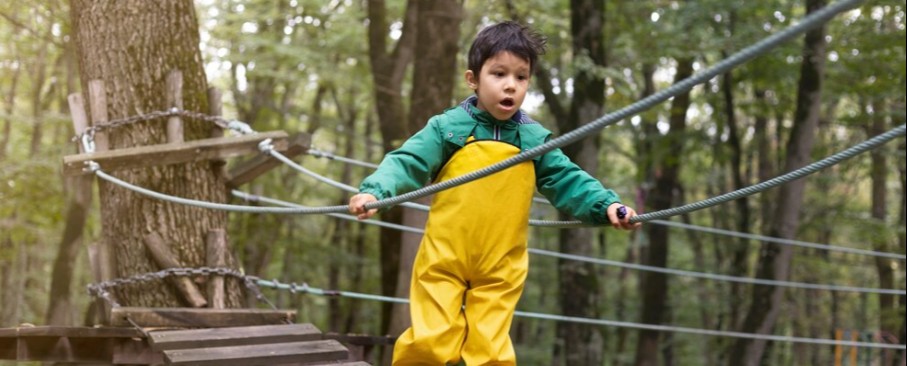
Building Resilience in Children: Tips for Parents and Educators

Building Resilience in Children: Tips for Parents and Educators
In a rapidly changing world, where challenges and uncertainties are inevitable, resilience is a crucial trait for children to develop. Resilience enables children to bounce back from setbacks, adapt to change, and thrive despite adversity. For parents and educators, fostering resilience in children is an essential task that requires intentional strategies and consistent support. Here are some practical tips to help build resilience in children.
Understanding Resilience
Resilience is the ability to recover from difficulties, cope with stress, and adapt to changing circumstances. It is not an innate trait but a skill that can be developed through supportive relationships, positive experiences, and effective coping strategies. Building resilience in children involves helping them develop emotional regulation, problem-solving skills, and a positive mindset.
Create a Supportive Environment
A nurturing and supportive environment is the foundation of resilience. Children need to feel safe, valued, and understood to develop the confidence and security necessary for resilience. Parents and educators can create such an environment by:
- Building Strong Relationships: Establishing strong, positive relationships with children is crucial. Show genuine interest in their lives, listen actively, and provide consistent support. Children who have secure attachments with adults are more likely to develop resilience.
- Encouraging Open Communication: Foster an atmosphere where children feel comfortable expressing their thoughts and emotions. Encourage them to talk about their feelings, ask questions, and share their concerns. Open communication helps children process their experiences and find constructive ways to cope.
- Providing Stability and Routine: Consistency and predictability in daily routines provide a sense of security. Establishing regular schedules for meals, homework, playtime, and bedtime helps children feel more in control and less anxious about the unknown.
Teach Problem-Solving Skills
Resilient children are effective problem-solvers. They can think critically, evaluate options, and make decisions. Parents and educators can help children develop problem-solving skills by:
- Encouraging Independence: Allow children to take on age-appropriate responsibilities and make decisions on their own. This fosters a sense of competence and autonomy, which are essential for resilience.
- Modeling Problem-Solving: Demonstrate effective problem-solving strategies in everyday situations. Talk through your thought process when facing a challenge and show how you evaluate options and make decisions. Children learn by observing and imitating adults.
- Guiding Rather Than Rescuing: When children face difficulties, resist the urge to solve the problem for them. Instead, guide them through the process of identifying the problem, brainstorming solutions, and evaluating the consequences of each option. This empowers children to handle future challenges independently.
Promote Emotional Regulation
Emotional regulation is the ability to manage and respond to emotions in a healthy way. Children who can regulate their emotions are better equipped to handle stress and bounce back from setbacks. To promote emotional regulation:
- Teach Emotional Literacy: Help children recognize and label their emotions. Use tools like emotion charts or storytelling to discuss different feelings and how to manage them. Understanding their emotions is the first step in regulating them.
- Encourage Mindfulness: Mindfulness practices, such as deep breathing, meditation, or yoga, can help children stay calm and focused. Teach them simple techniques to use when they feel overwhelmed or anxious.
- Validate Their Feelings: Acknowledge and validate children's emotions, even when they seem irrational. Let them know it’s okay to feel sad, angry, or scared. Validation helps children feel understood and reduces the intensity of negative emotions.
Foster a Growth Mindset
A growth mindset is the belief that abilities and intelligence can be developed through effort and learning. Children with a growth mindset are more resilient because they see challenges as opportunities to grow rather than as threats. To foster a growth mindset:
- Praise Effort, Not Just Achievement: Focus on the effort and process rather than the outcome. Praise children for their hard work, persistence, and strategies they use, rather than just the results. This encourages them to embrace challenges and learn from failures.
- Set Realistic Expectations: Help children set achievable goals and celebrate their progress. Setting realistic expectations and recognizing small successes build confidence and motivation.
- Encourage a Love of Learning: Cultivate curiosity and a passion for learning. Provide opportunities for children to explore new interests, ask questions, and seek out new experiences. A love of learning fosters resilience by promoting adaptability and a positive attitude towards challenges.
Build Social Connections
Strong social connections are a key component of resilience. Children who have supportive relationships with peers and adults are better able to cope with stress and adversity. To build social connections:
- Encourage Positive Peer Relationships: Facilitate opportunities for children to build friendships and interact with peers. Encourage cooperative play, group activities, and team sports to help children develop social skills and form strong bonds.
- Teach Empathy and Compassion: Help children understand and appreciate the feelings of others. Encourage acts of kindness, volunteering, and helping others in need. Empathy and compassion build strong, supportive communities.
- Provide Role Models: Expose children to positive role models who demonstrate resilience. Stories of individuals who have overcome challenges can inspire and motivate children to develop their own resilience.
Conclusion
Building resilience in children is a multifaceted process that requires a supportive environment, effective problem-solving skills, emotional regulation, a growth mindset, and strong social connections. By implementing these strategies, parents and educators can equip children with the tools they need to navigate life’s challenges with confidence and resilience. As children develop these skills, they will be better prepared to face adversity, adapt to change, and thrive in an ever-evolving world.
Articles
Build your awareness and get inspired with our researched articles on how you can strengthen your well-being
Popular Topics
An OTP has been sent to the email address
provided.
Please check your Inbox and Spam folders.

What Would You Like to Speak with a Specialist About?
Mental Fitness Journey starts Now!
Chearful Connects you with Top-tier Qualified Wellness specialists for the Price of a cup of Coffee!

Next Steps
- A Client Team member will reach out to you to schedule a session with the most suitable specialist.
- You will receive an email with a 10% Discount Code* for your 1st session.
- We invite you to Explore the Platform & Sign Up today! *Upto a maximum of $10 discount on a session purchased




 1934 Read
1934 Read










